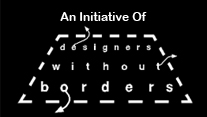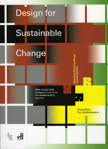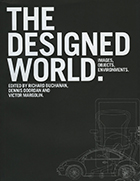David Stairs

There are a lot of people criticizing techno-capitalism these days, those so-called social pariahs demonstrating for economic “justice” and “equity.” But surely, these things are not givens in a free enterprise economy. They have generally needed the assistance of government regulation. In a system influenced by corporate lobbyists and deluded by the notion of limitless growth, even environmental degradation is not enough to staunch the lust for short-term gain. In fact, it may even accelerate it.
Fortune 500s, those flagships of corporate accomplishment, are the anchor tenants of the Dow and NASDAQ market indices. Repositories of knowledge, wealth, and power, some would refer to corporations as the engines of our economic system. Others might be a little more restrained.
Over the past year Wall Street has enjoyed a remarkable bull market run with record-breaking highs. According to The Commonwealth Fund, by comparison, 620,000 Americans have lost their lives to Covid, 15 million Americans lost a job to the pandemic, and 30 to 40 million Americans are at risk of eviction. In other words, the growth of equities does not result in equity.
Due to our cupidity about the economic system, we are often quick to credit corporate accomplishments. After all, who brings us the cars and planes we travel in, or the phones and computers we communicate with? In most areas of human accomplishment, corporations get a lion’s share of the credit, from the food we eat and the clothes we wear to the medicines we use. But do corporations ever let us down?
Did RJ Reynolds, Liggett, and Philip Morris cover up the dangers of smoking long before the Tobacco Settlement? Did Exxon-Mobil, BP, and Shell understand the environmental impacts of burning fossil fuels 50 years before mega fires and super storms became commonplace? Did Perdue Pharma, McKinsey, and Johnson & Johnson have an inkling of the addictive qualities of their product before what would become the opioid disaster unfolded? Has Facebook favored growth over truth by allowing hate speech, voter disenfranchisement, and medical misinformation to explode on its platform? Do Glock, Remington, or Colt even begin to accept responsibility for their contribution to an epidemic of gun violence? Unfortunately, the answer to all these questions is obvious, in fact, no farther away than your nightly news. And yet, we often ignore the obvious and not only continue to invest in these companies, but also to sell them our labor.
Given these oft-repeated facts, some might say that working for Fortune 500 companies is a poor indicator of personal accomplishment. Why then is it the gold standard for speakers at design conferences?
While op eds about social politics are commonplace, no one ever seems to write much about the politics of design. Is it because designers are not very political, or because they don’t want to be seen as venal? This can be a Catch-22, especially since designer venality is often a matter of defining self-worth through association with the very corporations one has serviced. Designers are not above boasting about this. In fact, such bravado is considered requisite to award and advancement in the profession.
I say, “F*ck the Fortune 500.”
To hell with the notion that designers serve at the pleasure of the instruments of our collective destruction. It’s past time for designers to stand up and be counted as friends of humanity, benefactors to the poor, and champions of the environment. Oh, and toss in advocates for social justice, just for good measure. Professional legitimacy needs to be weighed not in corporate profits, but in communal wellbeing.
For too long designers have been satisfied to have the forces that insist today is more important than tomorrow punch their meal tickets. I’m looking forward to the day when Greta Thunberg, Cornell West, and Gabby Giffords are plenary speakers at a design conference. When participation at conferences feels less like being in with the hip crowd and more like being one with humanity. When folks can attend such a gathering and feel they are not being fast-talked by a sales pitch for next year’s software. When design conferences are as keen to sponsor an event on environmental justice as on good business practice.
Because the clock is ticking ladies and gents. As the recent 6th installment of the IPCC UN climate report indicates, end times are rapidly descending upon us, and the response from the Fortune 500, aside from an increase in its Congressional lobbying budgets, has been a wink and a nod to how tech will save the day, how AI is the next big thing, and how we all need to “learn to code” as we rush headlong toward the Capitalist Singularity.
Seriously, motherf*ck the Fortune 500! Power to the People!
And may the gods help the people to save this Earth because corporations, with all their patriarchal impunity and plausible deniability, their bankruptcy protections and excuses for procrastination, are about wealth generation, period. And great concentration of wealth is always corrupt.
So you may as well box up those fancy corporate design awards and drag them out to the garage unless, of course, you have determined that they contain enough fiber and protein to sustain you for even one solar day. Then you can leave them in the basement. For now.
David Stairs is the founding editor of the Design-Altruism-Project.










